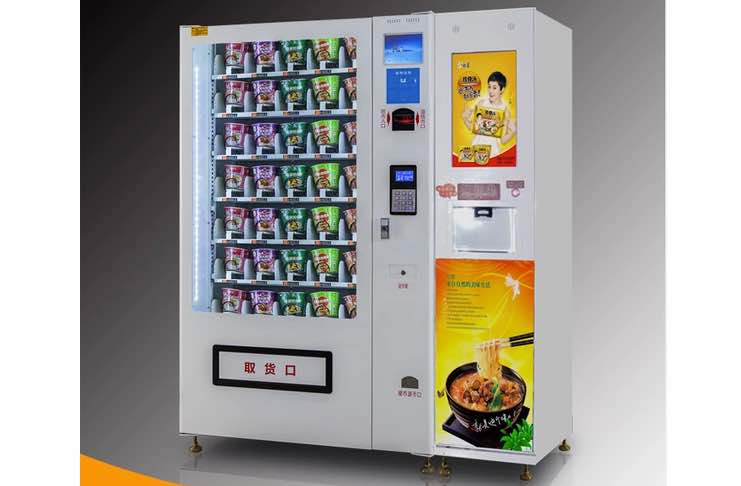Are Cbd Vending Machines Profitable?

Introduction
The CBD market has exploded in popularity over the past few years, with a growing number of consumers seeking out its potential health benefits. As the demand for convenient access to CBD products increases, innovative distribution methods are emerging. One such method is the introduction of CBD vending machines, which offer a unique opportunity for entrepreneurs. But the question remains: Are CBD vending machines profitable? In this article, we will explore the viability of this business model, examining factors such as costs, potential profits, market demand, and operational challenges. By the end, you’ll have a clearer understanding of whether investing in a CBD vending machine is a sound financial decision.
Understanding CBD Vending Machines
What Are CBD Vending Machines?
CBD vending machines are automated kiosks that dispense various CBD products, including oils, edibles, topicals, and even beverages. These machines are typically placed in high-traffic areas such as shopping malls, gyms, and airports, providing a convenient way for customers to purchase CBD products without needing to visit a retail store.
The Rise of the CBD Market
The CBD industry has seen exponential growth, with the global market projected to reach $13.4 billion by 2028, according to a report by Grand View Research. This surge in demand has led many entrepreneurs to explore new avenues for distribution, making CBD vending machines an attractive investment option.
Factors Affecting Profitability
Initial Investment Costs
Before diving into the profitability of CBD vending machines, it’s crucial to assess the initial investment costs involved. Here are some key expenses to consider:
- Vending Machine Purchase or Lease: Depending on the size and technology of the vending machine, costs can range from $3,000 to $10,000.
- Inventory Costs: Stocking the machine with CBD products can require significant upfront capital, especially if you aim to offer a diverse selection.
- Location Fees: Finding the right location is essential for sales. Some locations may charge a rental fee or a percentage of sales.
- Licensing and Compliance: Depending on your jurisdiction, you may need permits to operate a CBD vending machine, which can incur additional costs.
Revenue Potential
The potential revenue generated by CBD vending machines can vary widely based on several factors:
- Location: High-traffic areas typically yield higher sales. For instance, a vending machine in a busy gym may generate more revenue than one in a quiet corner store.
- Product Pricing: CBD products have varying price points. Offering a range of products can attract different demographics, enhancing overall sales.
- Operating Hours: Unlike physical stores, vending machines can operate 24/7, maximizing sales potential.
Market Demand
Understanding market demand is crucial for determining profitability. Trends indicate that consumers are increasingly seeking convenient access to CBD products. Here are some insights into consumer behavior:
- Convenience: Many consumers prefer the ease of purchasing CBD products from a vending machine rather than navigating a retail store.
- Product Variety: Providing diverse options, including popular items like gummies, oils, and beverages, can attract a broader customer base.
- Transparency: Consumers are increasingly interested in product sourcing and quality. Offering clear labeling and information can build trust and encourage purchases.
Operational Challenges
While the potential for profit is appealing, there are several operational challenges to consider:
Regulatory Compliance
CBD regulations vary significantly by state and country. Ensuring compliance with local laws is essential to avoid fines or legal issues. This may include:
- Product Sourcing: Ensuring that all products are sourced from reputable suppliers and meet regulatory standards.
- Labeling Requirements: Adhering to specific labeling guidelines to inform consumers about the product's contents and potential effects.
Maintenance and Management
Maintaining a vending machine involves regular tasks such as:
- Restocking Inventory: Keeping the machine stocked with fresh products requires time and effort.
- Technical Issues: Vending machines can malfunction, necessitating repairs and downtime, which can affect revenue.
Marketing and Visibility
To maximize sales, effective marketing strategies are necessary:
- Promotions: Consider offering discounts or loyalty programs to encourage repeat customers.
- Social Media and Online Presence: Utilizing social media platforms can help build awareness and attract customers to your vending machine.
Conclusion
In conclusion, CBD vending machines can be profitable, but success depends on various factors, including location, initial investment costs, product variety, and market demand. While there are operational challenges and regulatory hurdles to navigate, the growing interest in CBD products presents a significant opportunity for entrepreneurs. If you’re considering entering this market, thorough research, strategic planning, and effective marketing will be key to maximizing your investment. As the CBD landscape continues to evolve, staying informed about trends and consumer preferences will further enhance your chances of success.



Comments ()